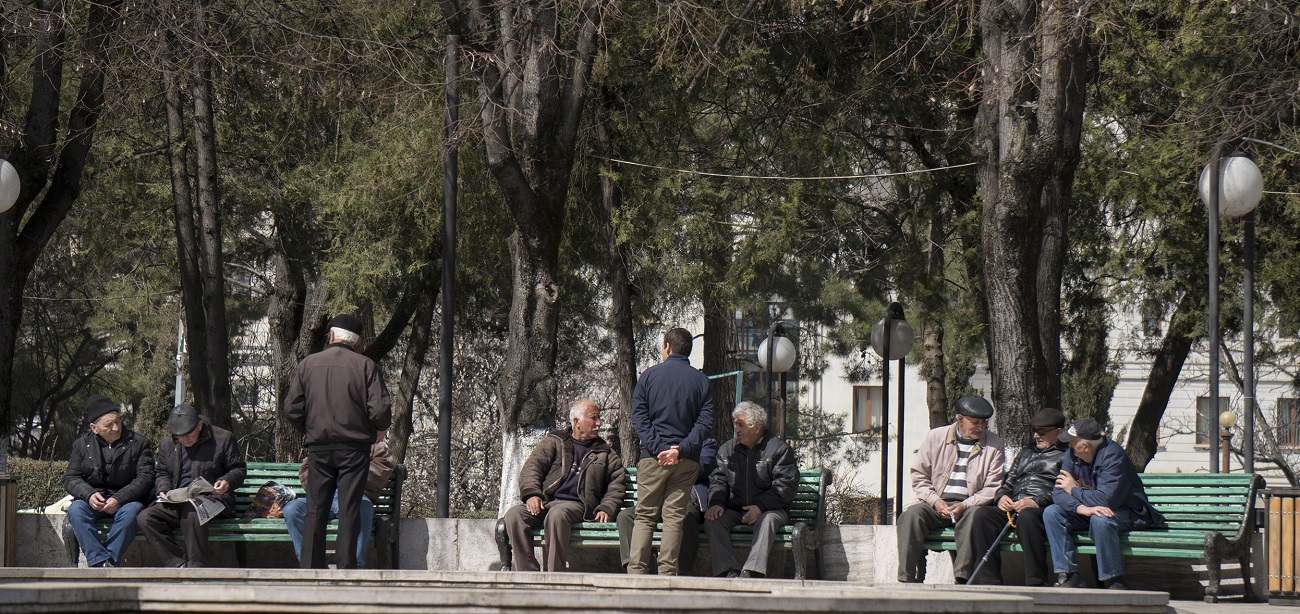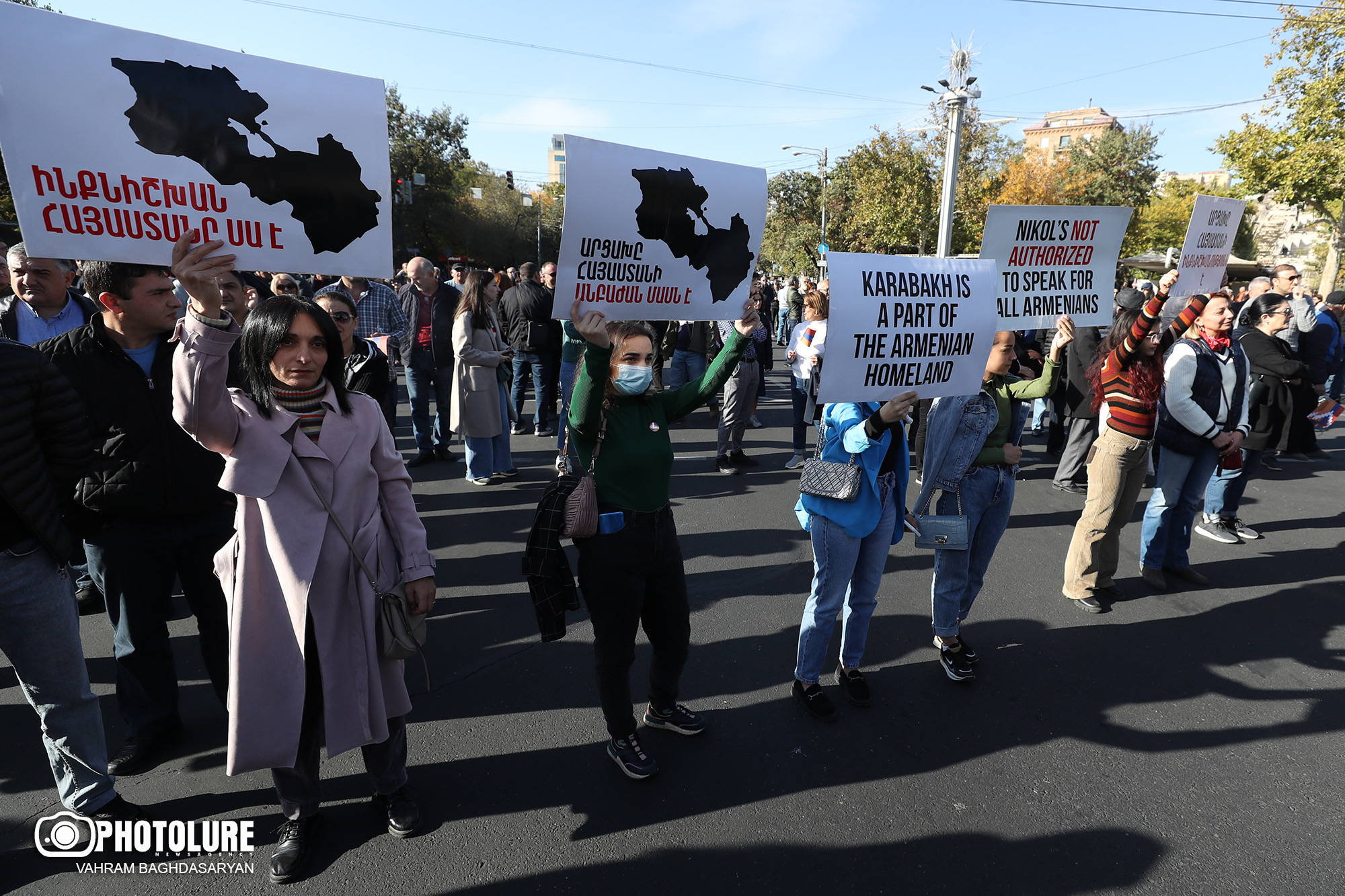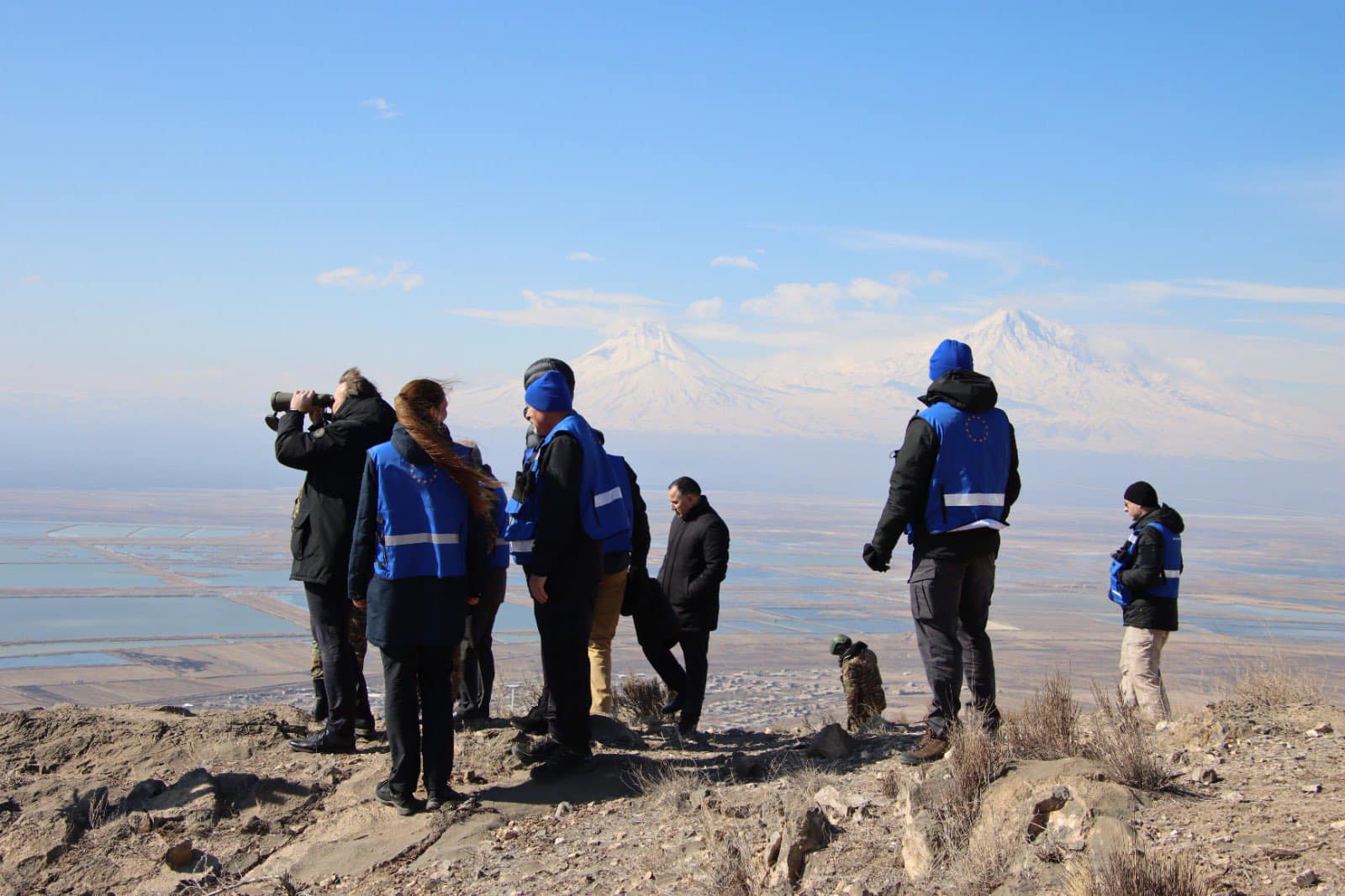"Aliyev openly threatens and is sure that he will get away with it." Opinion from Yerevan
Opinion on Aliyev’s statements in Lachin
In Armenia the recent speech of Ilham Aliyev is being discussed. Yesterday the President of Azerbaijan visited Lachin and made statements, in particular regarding the terms of the peace treaty with Armenia and the demands addressed to the Armenians living in Nagorno-Karabakh. Analysts in Armenia regarded his speech to be “a demand to fulfill the conditions dictated by Azerbaijan and a threat to use force in case of refusal.”
Political observer Hakob Badalyan says that Aliyev, once again, “rejected the issue of ensuring the rights and security of the Armenians of Nagorno-Karabakh.” He believes that Washington and Brussels should react Aliyev’s speech and to clarify what progress they talked about during the negotiations.
Aliyev’s statements
- “I say before it’s too late, as long as Armenia, although not de facto, has legal independence, as long as the concept of Armenia’s borders is accepted in a certain sense. They must accept our terms. They don’t want delimitation, and they don’t need to. What will happen in this case? The border will pass where we say. They know that we can do it. No one will help them, neither the French retired policemen who have arrived from Europe, nor anyone else, nobody.”
- “The delimitation of borders should take place on our terms, that is, on fair terms. The peace agreement must be based on international rules, the road to Nakhichevan must be opened. All representatives of the Armed Forces of Armenia must be withdrawn from Karabakh. These are our terms.”
- “I declare these conditions here, in the city of Lachin, so that everyone can see: today we are here and we will be here forever. Let them also know that the villages of Armenia are visible from here. We also see these villages, that is, let them not forget about this.”
- “Representatives of the Armenian minority living in Karabakh will not receive a third invitation. Either they themselves will come with their heads bowed, or events will develop in a different way.
- “They [the authorities of Nagorno-Karabakh] can only fall under the amnesty if they themselves voluntarily leave all fictitious positions and apply for Azerbaijani citizenship. And then we’ll see.”
- “Your book is closed. The book “Miatsuma” [in Armenian – “unification”, in this case it refers to the reunification of NK with Armenia] was closed, separatism came to an end. Dreams of independence went the same way as status. And we sent the status to the right place during the second Karabakh war. Therefore, the only way left is to obey the laws of Azerbaijan, become loyal, normal citizens of Azerbaijan, throw away your fake “state attributes” in the trash and dissolve the “parliament”.
- “We have every opportunity to carry out any operation in that region [referring to Nagorno-Karabakh].”
- “The statement made a few days ago by the leadership of Armenia is in fact a repetition of my words said several years ago: “Karabakh is Azerbaijan!” And now, after Armenia has already recognized our territorial integrity, there are virtually no serious obstacles left for the peace treaty.”
Pashinyan: “Is this a rejection of the Brussels agreements?”
This question arose from the Prime Minister of Armenia in connection with the statements of the President of Azerbaijan, in particular the assertion that “the delimitation of the borders should take place on Azerbaijan’s terms”.
Nikol Pashinyan said that Aliyev’s statements were “incomprehensible”:
“Both Azerbaijan and international partners should at least clarify whether this means a rejection of the agreements reached in Brussels. We really need to get an answer to this question from our partners in order to plan our further actions.”
The Prime Minister instructed the Minister of Foreign Affairs to make “additional clarifications”.
With his demands, Aliyev “recognizes the legitimacy of these institutions”
Aliyev’s statements were also reacted to in the unrecognized NKR. In particular, the statement regarding the “dissolution of state attributes” was considered illegal here.
The press secretary of the president of the unrecognized republic, Lusine Avanesyan, stressed that the president and parliament were elected on the basis of democratic principles and the constitution:
“And the President of Azerbaijan is well aware that these state institutions are the main source of Artsakh’s subjectivity. And, in fact, with such requirements, he recognizes the legitimacy and importance of these institutions.”
She stressed that this is not the first time Aliyev has resorted to “the language of threats, addressing the Armenians of Artsakh”, and “manifestations of aggression in the form of local hostilities, blockades, energy and other pressures”:
“Along with active international efforts aimed at ensuring lasting peace in the South Caucasus, the Azerbaijani President’s repeated threats to the people and statehood of Artsakh are aimed at undermining the prospect of the effectiveness of these efforts.”
A comment
Political observer Hakob Badalyan is waiting for a reaction from the President of the European Council, Charles Michel. He recalls that after the May Pashinyan-Aliyev meeting in Brussels, Michel called on the President of Azerbaijan to create a positive agenda regarding the rights and security of the Armenians of the “former NKAR”, as he put it.
“Let it not sound rude, but Michel Aliyev actually sends these calls to hell. The head of the European Council must react to make it clear what Aliyev’s position he really supports. Does he condemn the tone of Aliyev, in which he speaks about the rights and security of people in NK,” Badalyan said.
He does not rule out that Baku is trying to resolve various political issues by escalating tension and using forceful methods. To neutralize such risks, according to Badalyan, Armenia “emphasize the responsibility of all mediators who speak of their commitment to a peaceful settlement of Armenian-Azerbaijani relations.” He argues that the “first indicator” of such a commitment should be the exclusion of the use of force and the threat of its use.
“Washington, Brussels, Moscow as key destinations, as well as Paris and Berlin, which has been mentioned recently. The first question that all these actors must answer is how and to what extent they are ready to deprive Azerbaijan of the possibility of using force and the threat of using force.”
According to Badalyan, no clear actions aimed at containing Aliyev are visible either from Moscow, Brussels, or Washington. He says that Aliyev is convinced that the steps he is taking will be fully accepted by international partners:
“Not only accepted, but digested. The facts prove that they are indeed digestible. And this is not surprising, they all have interests with Aliyev. No one is taking a deliberate negative stance or policy towards Armenia or Artsakh, they are simply pursuing a policy that involves interests with Azerbaijan. And these interests include not only oil and gas, but also Central Asia and issues related to the Caspian Sea basin.”
Commenting on the statement of the President of Azerbaijan that the Armenians of Karabakh will not be offered negotiations for the third time, he said:
“Only Yerevan talks about the international mechanism of the Baku-Stepanakert dialogue, the international community only raises issues of the rights and security of Armenians. If the mediators had an idea, a vision of such a mechanism, I don’t think that Azerbaijan would not take it into account.”
He notes that Azerbaijan has been steadily adhering to the following strategy over the past two decades:
“Some approaches are being voiced, an attempt is being made to consolidate them in the field of international loyalty. When they are fixed in a certain way, Azerbaijan takes steps for practical promotion and implementation of the reality formulated in words.”
Commenting on “Aliyev’s threats against Armenia regarding the terms of the peace agreement,” Badalyan says that they do not give grounds to expect significant progress in the negotiations. He believes that this is evidenced both by the radically opposite positions of the parties themselves, and the impossibility of agreement and unity among the main international players involved in the process:
“Azerbaijan in this situation gets the opportunity to move forward its policy, built on a position of strength, albeit slowly, step by step. The presence of contradictions in the interests of major players creates fertile ground for the policy of Azerbaijan.”
According to the expert, Armenia faces a difficult task – to find countermeasures. He believes that the development of bilateral agendas with key players can be productive, which in turn will affect the manageability of risks in Armenian-Azerbaijani relations.
Follow us – Twitter | Facebook | Instagram
Opinion on Aliyev’s statements in Lachin





















